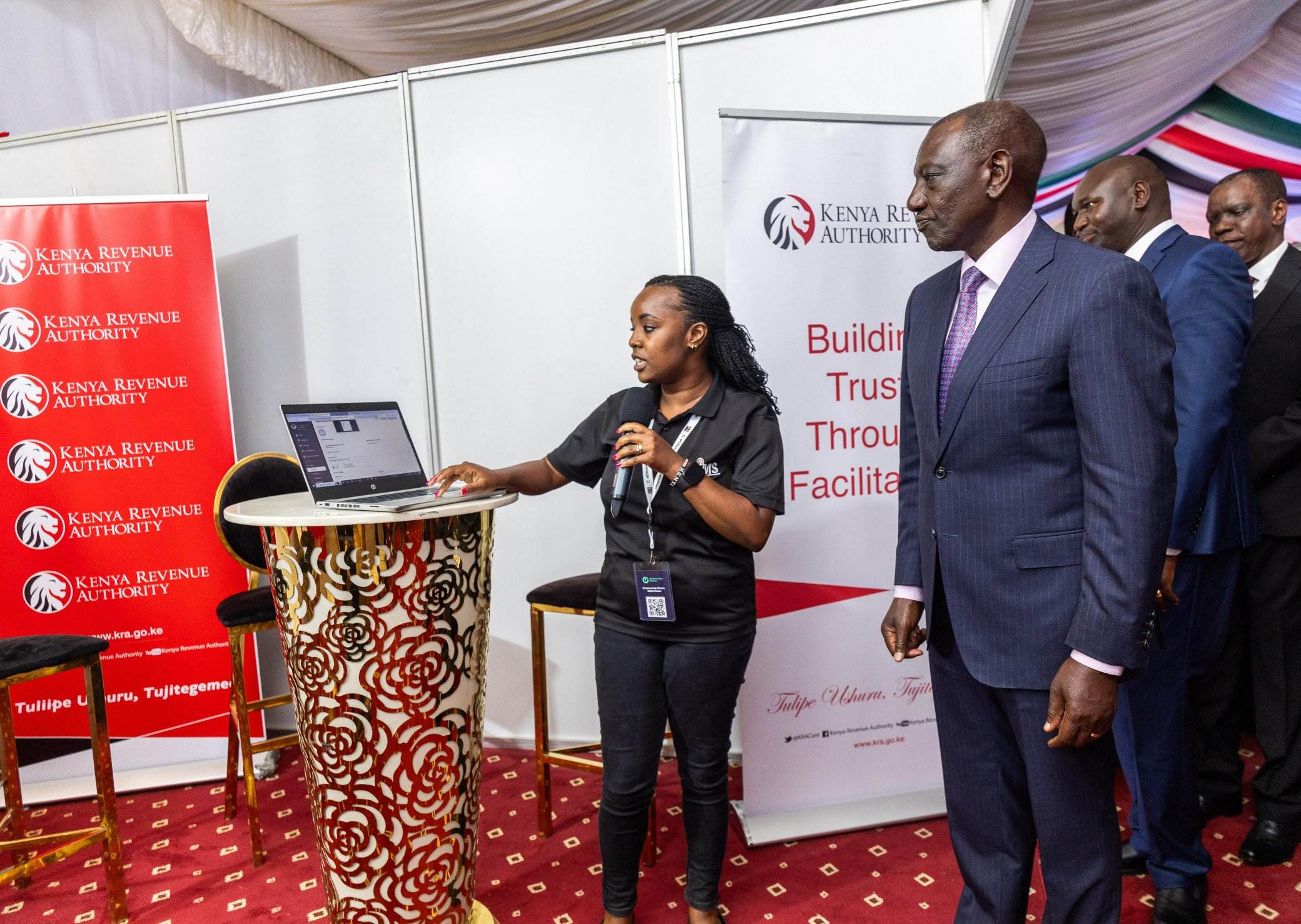ECitizen firm distances itself from missing funds, says Interior Ministry must explain revenue gaps

David Kiprono, the Director of Government Relations at ECS, said the concerns raised in Parliament and by the Auditor-General are not directed at ECS but at government officials tasked with managing the platform.
The team managing the eCitizen digital platform has said the Interior Ministry, not the private company behind the system, is responsible for explaining missing funds.
In an interview with Citizen Digital, David Kiprono, the Director of Government Relations at ECS, the consortium managing eCitizen, said the government must take full responsibility for any gaps in the revenue figures reported.
More To Read
- AG advises Treasury CS to halt Sh50 e-Citizen convenience fee following High Court order
- Blow to State as court declares eCitizen Sh50 charge illegal, halts mandatory school fee payment via platform
- Ruto says fibre-optic growth powering faster eCitizen services and digital access
- KFS clarifies Karura payments shift will not affect forest management amid uproar
- Treasury defends payments to firm outside original e-Citizen deal, cites contract revision
- Sh1.8 billion in unlawful eCitizen charges revealed in audit spark concern over government accountability
“Parliament has questions to ask the government department handling eCitizen, which is in the Interior Ministry,” he said.
The Auditor-General’s office recently raised issues over the accuracy of over Sh15 billion collected through eCitizen for the year ending June 2023.
The office also flagged differences between the digital records and those kept by government departments for the current financial year.
Kiprono said all transactions are recorded in full and can be checked against user details such as phone number, ID number, and service used.
“Every end month, we invoice for every transaction that has gone through our payment gateway; on the government side, they have to verify that all the transactions were made. We can pull all the data from our system and verify down to the phone number, service sought, and ID number,” he explained.
Transparency
Kiprono said ECS only manages the system and does not handle state revenue. He added that the platform is secure and does not allow any room for tampering with data.
“As a vendor, we deploy and manage the system. It is very foolproof. You cannot falsify a transaction. Sometimes, when there is a lack of clarity, they say they’ll hold on, and we let them do it, and later they pay us once they have clarified things,” he said.
Kiprono said the concerns raised in Parliament and by the Auditor-General are not directed at ECS but at government officials tasked with managing the platform.
Legislators have also questioned the Sh50 convenience fee charged on eCitizen services. Kiprono explained that this fee is the only money used to maintain the platform.
“To date, eCitizen has never been funded by the exchequer. The convenience fee is what we pay for cybersecurity licences, certifications, bandwidth, salaries and the company’s bills,” he told Citizen Digital.
He added that ECS does not receive the full amount, as some government departments involved in service delivery take a portion of the fee.
“We never even get the full Sh50 because each of the ministries involved deducts something from the convenience fee to run the budgets for the departments maintaining the platform,” he said.
Revenue collection role was separated
Kiprono also addressed the past confusion over revenue collection, which led to ECS losing control of the M-Pesa Paybill number used for eCitizen payments.
At the start, ECS had hired Goldrock Capital to collect payments, but the deal drew criticism since there was no formal agreement with the government. The Auditor-General at the time said this setup was not lawful.
“Goldrock had been contracted to collect this convenience fee on behalf of ECS. If it had any regulatory issues with the government, that is not on us,” Kiprono said.
After Goldrock was removed, Pesaflow took over. Some of its shareholders had previously worked with Webmasters Africa, a company linked to ECS.
Although the government fully took over eCitizen in 2023, ECS still has a three-year contract to maintain the system. The platform now falls under the Department of Immigration and Citizen Services.
Kiprono said ECS now only supports the system and no longer touches the money collected through it. According to him, the platform collects around 1 billion shillings daily.
“We grew from making Sh100 million a day to Sh1 billion. It oscillates such that on some dry months we go to Sh900 million,” he said.
The platform now hosts more than 22,000 services, including those from the tax authority, transport regulator, and registration bureaus.
Top Stories Today














































